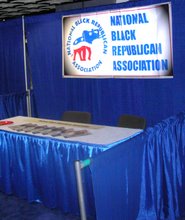The Economy
The "soaring" stock market and the economy are not related in the way that dishonest politicians and t.v. talkingheads lead the public to believe with their frightfully incomplete commentary. The stock market was over 10,000. But that number didn't translate into higher wagers for U.S. workers. Many workers had to take pay cuts, or benefit cuts. It didn't stop the loss of jobs. Whitecollar job outsourcing and manufacturing plant closings continue. It didn't help the Pension Benefit Guaranty Corporation (government agency that protects the pensions of retirees when a company goes bankrupt) to sufficiently replenish its funds. The General Accounting Office considers that agency to be "high-risk" and declared that its funding problems .:will not:. be fixed, even if the stock market manages to surge to higher heights.
Similarly, the .:8.2% GDP:., foolishly held up as further proof of a strong economy, didn't put more money into the average working person's pocket. Holiday retail sales figures for mega-discount department stores were dismal. However, high-end retailers like Tiffany's did very well —that's a big clue as to who is benefiting from Dubya's version of trickle down economics.
The people who can afford to shop in those pricey stores are, I'm sure, as pleased as punch about the economic climate. The legion of long-term unemployed workers, recently unemployed workers, and workers whose pay and benefits were cut have another story to tell. Ask them.
Subscribe to:
Post Comments (Atom)

No comments:
Post a Comment